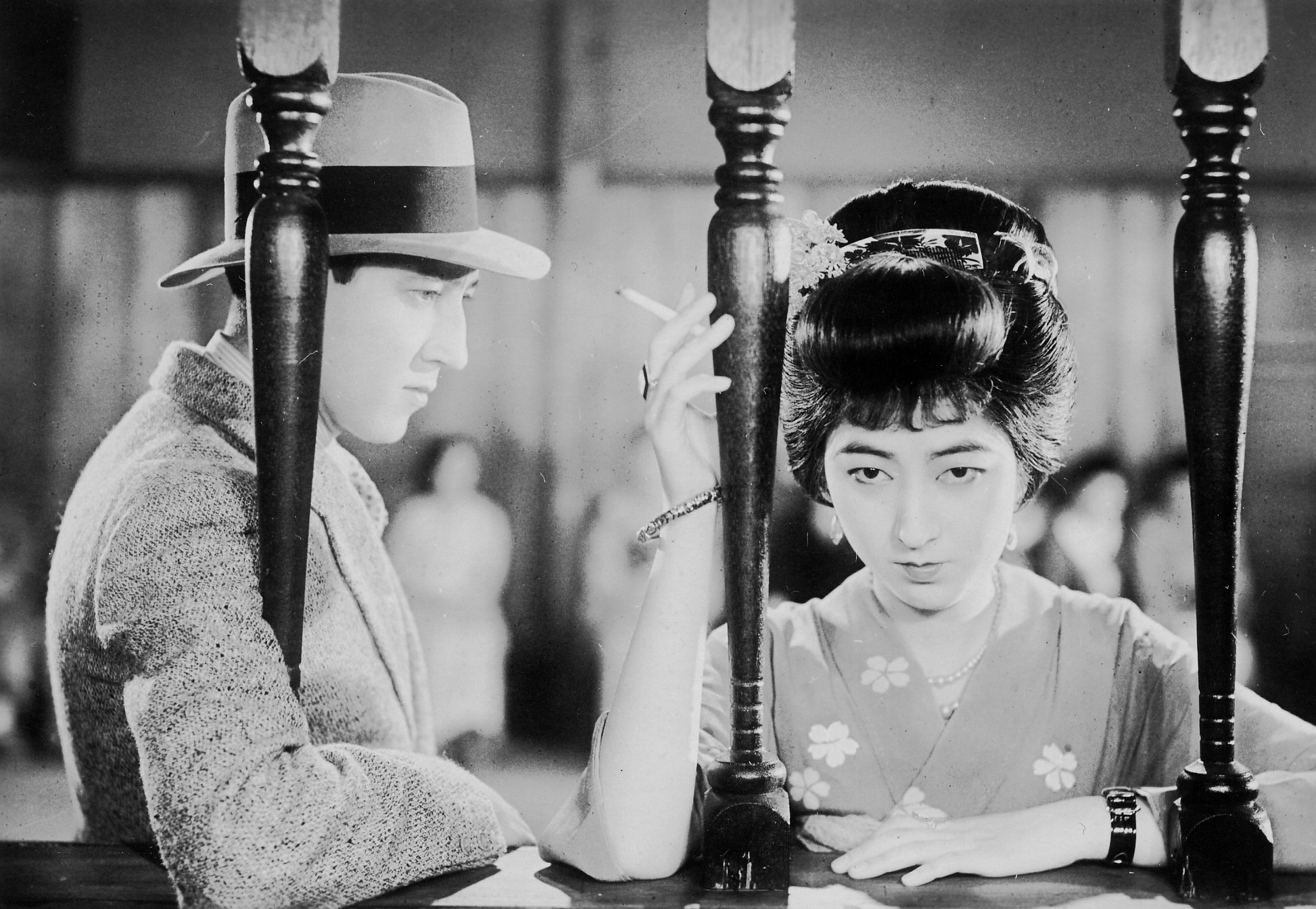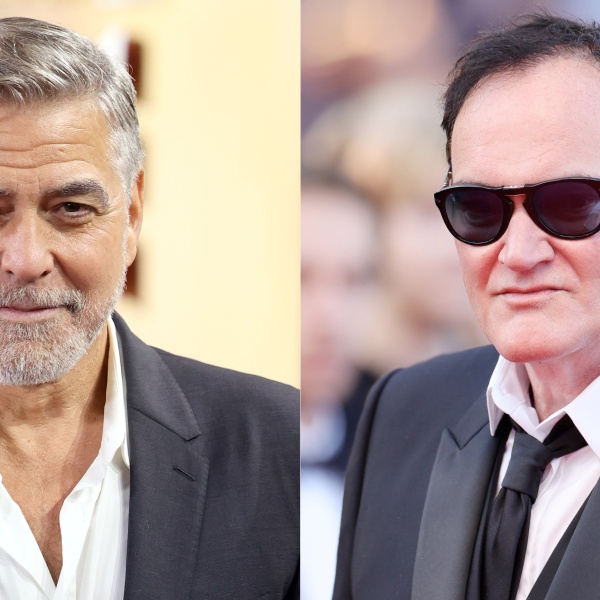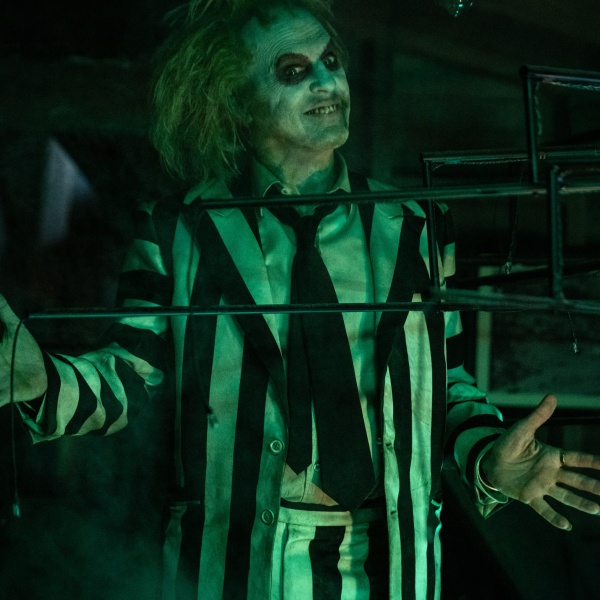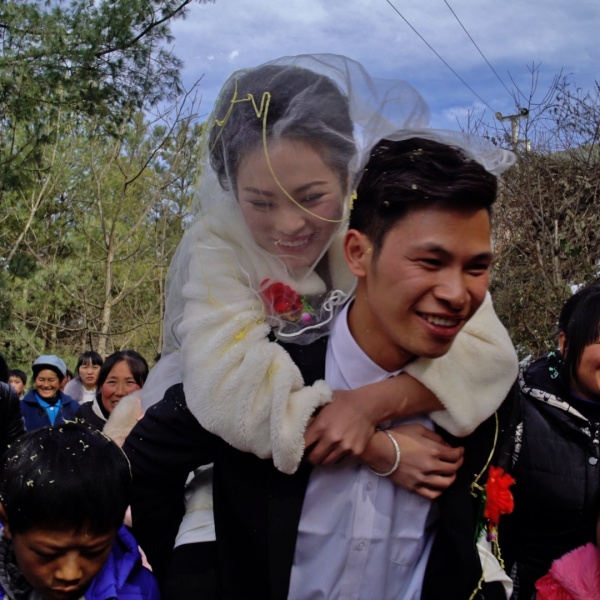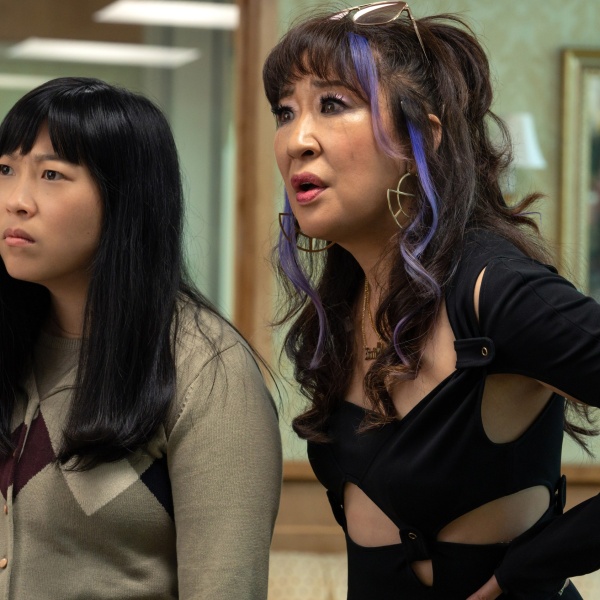Hiroshi Shimizu‘s filmography, one deserving of more recognition, is now getting the big screen treatment on an international scale.
The late pioneering Japanese director is the subject of two honorary retrospectives, programmed in partnership between the Museum of the Moving Image and Japan Society and co-organized with the National Film Archive of Japan and the Japan Foundation, New York. Part I, titled “The Shochiku Years,” begins May 4 at the Museum of the Moving Image and runs through May 19.
The series includes Shimizu’s works that range from early melodramas in both silent and sound films to his illustrious tours of provincial life, which would later become a signature of the filmmaker’s style. Programming highlights include “Japanese Girls at the Harbor” (1933), “Mr. Thank You” (1936), “The Masseurs and a Woman” (1938), and “Ornamental Hairpin” (1941). Screening of select films are very rare, and have not screened in the city in decades, including “A Star Athlete,” “Children in the Wind,” and “Four Seasons of Children.”
The second retrospective is hosted by the Japan Society and runs through May 16 to June 1. Titled “Part II: The Postwar and Independent Years,” the program is co-organized by Museum of the Moving Image, Japan Society, the National Film Archive of Japan, and the Japan Foundation of New York. The inaugural John and Miyoko Davey Classic Film Series focuses on Shimizu’s post-war features that capture Japan in a state of regeneration. Part II includes the international premiere of “Tomorrow There Will Be Fine Weather” (1948), a film that was considered lost for 70 years until it was rediscovered in 2022 by the National Film Archive of Japan. Shimizu’s final film “Image of a Mother” (1959) is included, with features boasting new English subtitles.
The complete “Children of the Beehive” trilogy will also screen, which is rare in its entirety. This marks the first time the “Children of the Beehive” trilogy will be available in North America. The late-period saga is the culmination of the director’s postwar work, featuring the eight war orphans Shimizu himself adopted and brought up in a rented Buddhist temple after World War II.
The two-part 27-film retrospective further features rare, imported archival 35mm prints, live piano accompaniment, and newly commissioned subtitles. Shimizu helmed 163 films, and yet only about a quarter survive. The filmmaker worked for leading Japanese studio Shochiku alongside Yasujirō Ozu through the mid-1920s until he formed his own independent production company in the late 1940s and helped usher in the Golden Age of Japanese Cinema.
An iteration of the MoMI/Japan Society program titled “Hiroshi Shimizu: Notes of an Itinerant Director” will travel to Berkeley Art Museum and Pacific Film Archive (BAMPFA) in July.
See the full lineup for the Shimizu retrospective below.
Museum of the Moving Image
Seven Seas: Chapter 1 – Virginity
『七つの海・前篇・処女篇』
Dir. Hiroshi Shimizu, 1931, 72 min., 35mm, in Japanese with English subtitles.
Seven Seas: Chapter 2 – Chastity
『七つの海・後篇・貞操篇』
Dir. Hiroshi Shimizu, 1932, 82 min., 35mm, b&w, in Japanese with English subtitles.
A Woman Crying in Spring
『泣き濡れた春の女よ』
Dir. Hiroshi Shimizu, 1933, 96 min., 35mm, in Japanese with English subtitles.
Japanese Girls at the Harbor
『港の日本娘』
Dir. Hiroshi Shimizu, 1933, 78 min., 35mm, in Japanese with live English subtitles.
A Hero of Tokyo
『東京の英雄』
Dir. Hiroshi Shimizu, 1935, 63 min., 35mm, in Japanese with English subtitles.
Mr. Thank You
『有りがたうさん』
Dir. Hiroshi Shimizu, 1936, 75 min., 35mm, in Japanese with English subtitles.
Forget Love for Now
『恋も忘れて』
Dir. Hiroshi Shimizu, 1937, 73 min., 35mm, in Japanese with English subtitles.
Children in the Wind
『風の中の子供』
Dir. Hiroshi Shimizu, 1937, 86 min., 35mm, in Japanese with live English subtitles.
A Star Athlete
『花形選手』
Dir. Hiroshi Shimizu, 1937, 64 min., 35mm, in Japanese with live English subtitles.
The Masseurs and a Woman
『按摩と女』
Dir. Hiroshi Shimizu, 1938, 66 min., 35mm, in Japanese with live English subtitles.
Four Seasons of Children: Spring/Summer
『子供の四季・春夏の巻』
Dir. Hiroshi Shimizu, 1939, 70 min., 35mm, in Japanese with live English subtitles.
Four Seasons of Children: Autumn/Winter
『子供の四季 ・秋冬の巻』
Dir. Hiroshi Shimizu, 1939, 71 min., 35mm, in Japanese with live English subtitles.
Introspection Tower
『みかへりの塔』
Dir. Hiroshi Shimizu, 1941, 111 min., 35mm, in Japanese with live English subtitles.
Notes of an Itinerant Performer
『歌女おぼえ書』
Dir. Hiroshi Shimizu, 1941, 97 min., 35mm, in Japanese with English subtitles.
Ornamental Hairpin
『簪』
Dir. Hiroshi Shimizu, 1941, 70 min., 35mm, in Japanese with English subtitles.
Sayon’s Bell
『サヨンの鐘』
Dir. Hiroshi Shimizu, 1943, 74 min., 35mm, in Japanese with live English subtitles.
Japan Society
Children of the Beehive
『蜂の巣の子供たち』
Dir. Hiroshi Shimizu, 1948, 86 min., 35mm, in Japanese with English subtitles.
Tomorrow There Will Be Fine Weather
『明日は日本晴れ』
Dir. Hiroshi Shimizu, 1948, 35mm, 65 min., in Japanese with live English subtitles.
Mr. Shosuke Ohara
『小原庄助さん』
Dir. Hiroshi Shimizu, 1949, 97 min., 16mm, in Japanese with English subtitles.
A Mother’s Love
『母情』
Dir. Hiroshi Shimizu, 1950, 83 min., 35mm, in Japanese with live English subtitles.
Children of the Beehive: What Happened Next
『その後の蜂の巣の子供たち』
Dir. Hiroshi Shimizu, 1951, 94 min., 35mm, in Japanese with live English subtitles.
Children of the Great Buddha
『大仏さまと子供たち』
Dir. Hiroshi Shimizu, 1952, 102 min., 35mm, in Japanese with live English subtitles.
The Shiinomi School
『しいのみ学園』
Dir. Hiroshi Shimizu, 1955, 100 min., 35mm, in Japanese with live English subtitles.
Sound in the Mist
『霧の音』
Dir. Hiroshi Shimizu, 1956, 84 min., DCP, in Japanese with English subtitles.
The Sentimental Idiot
『人情馬鹿』
Dir. Hiroshi Shimizu, 1956, 71 min., DCP, in Japanese with English subtitles.
Dancing Girl
『踊子』
Dir. Hiroshi Shimizu, 1957, 96 min., DCP, in Japanese with English subtitles.
Image of a Mother
『母のおもかげ 』
Dir. Hiroshi Shimizu, 1959, 89 min., DCP, in Japanese with English subtitles.
